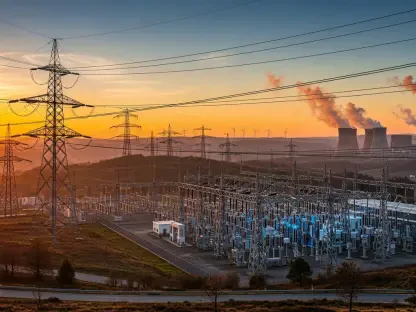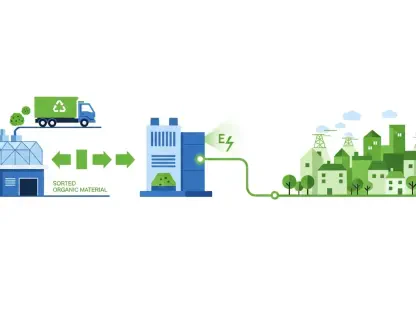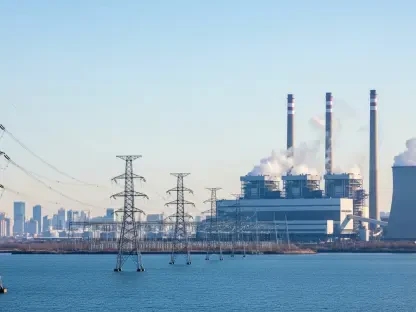Christopher Hailstone has extensive experience in energy management, renewable energy, and electricity delivery. As an authority on utilities, his insights into grid reliability and security are invaluable. Today, we discuss the recent challenges faced by Australia’s top fuel retailer, Ampol, as well as broader market conditions and strategies.
Can you explain the primary factors that led to the 49% drop in refining margins for Ampol’s Lytton refinery?
The primary factors include the impact of Cyclone Alfred which caused significant disruptions. On top of that, there were weak refining margins in the broader Asian markets, notably in Singapore. These elements combined to severely affect the refining margins at Lytton.
How significant was the impact of Cyclone Alfred on the operations and production of the Lytton refinery?
Cyclone Alfred was quite significant. It led to roughly ten days of lost production. Proactive measures were taken to secure the facility, but production was inevitably hampered, contributing to the sharp decline in refining margins.
What proactive measures did Ampol take to secure the Lytton refinery before the cyclone made landfall?
Ampol focused on safety and operational integrity by initiating precautionary shutdowns and securing equipment. This likely limited potential damage but also contributed to the production halt and subsequent margin drop.
Why do you think refining margins in Singapore have been depressed?
The margins have been hurt by excess supply and persistent softness in derivative markets. This strain has become more pronounced in Asia, influencing prices and profit margins.
How do you see the situation evolving for refining margins in the coming quarters?
While there might be some recovery depending on market adjustments and supply-demand dynamics, persistent economic slowdowns and the introduction of new refineries globally could continue to pressure margins.
What role does Ampol play in the broader Asian refining market?
Ampol is a significant player, with its operations in Queensland being a part of the larger Asian refining landscape. Their performance and strategy adjustments often reflect broader market conditions in the region.
Could you elaborate on the Fuel Security Services Payment program and how it provides downside protection?
The Fuel Security Services Payment program is designed to provide financial support to refiners during periods of market weakness by compensating for lost profits. This offers a form of economic cushioning, ensuring operational sustainability.
What criteria does Ampol need to meet to be eligible for payment under this program?
Eligibility typically involves demonstrating significant financial impact from market conditions, such as depressed margins. Ampol needs to adhere to specified regulatory and operational standards to qualify.
How does the program support Ampol during periods of global refining market weakness?
The program provides financial compensation, helping to mitigate losses and ensuring that refining operations can continue even when the market is unfavorable. It effectively offers a safety net during times of significant market downturn.
What were the specific reasons behind the 5.7% drop in quarterly output at the Lytton refinery?
The drop was mainly due to production halts from Cyclone Alfred and the precautionary measures taken to secure the refinery, exacerbating the already challenging market conditions.
How did the damaged crude tank roof affect demurrage costs, and what steps are being taken to mitigate this?
The damaged roof hampered the handling and storage of crude oil, increasing demurrage costs due to delays. Ampol is likely undertaking repairs and reviewing storage protocols to prevent future issues.
How have new refineries coming online in Africa, the Middle East, and Asia affected Ampol’s refining margins?
New refineries have introduced additional capacity into the market, driving down margins due to increased competition and supply. This makes it imperative for Ampol to optimize operations and explore innovative strategies to stay competitive.
What strategies is Ampol employing to remain competitive in light of new global refinery capacities?
Ampol is likely focusing on enhancing operational efficiencies and cost management. They may also be exploring diversification of their product mix and geographical market reach to buffer against increased global competition.
Can you discuss the recent mid-single-digit percentage growth in earnings for Ampol’s Australian convenience retail segment?
The growth in this segment can be attributed to improved retail fuel margins and effective in-store execution strategies. Ampol’s efforts in enhancing customer experience and product offerings have clearly paid off.
What have been the key factors driving this growth?
Key factors include Ampol’s premium fuel strategy, the store refresh program, and a dedicated effort towards cost reduction. These initiatives have helped attract more customers and maximize in-store profitability.
How is the premium fuel strategy and store refresh program contributing to the success?
The premium fuel strategy appeals to a segment of customers willing to pay more for quality fuel, while the store refresh enhances customer experience and increases foot traffic, contributing significantly to revenue growth.
How has the slowing economic growth impacted Ampol’s profitability?
Slowing economic growth typically reduces overall demand for fuel, affecting sales volumes and, consequently, profitability. This economic environment necessitates tighter operational controls and strategic pivots to maintain margins.
What effect is the rising penetration of electric vehicles in China having on Ampol’s refining business?
The increased adoption of electric vehicles in China leads to reduced demand for traditional fuels, shrinking the market for refiners like Ampol. They may need to adapt by focusing on alternative markets or diversifying product lines.
What is your forecast for the future of the refining industry, and what strategies do you think will be critical for success?
The refining industry will need to adapt to a more energy-diverse future, with sustainability playing a crucial role. Strategies that prioritize operational efficiency, adaptability, and market diversification will be key. Ampol and others must innovate continually to meet evolving energy demands and environmental standards.









